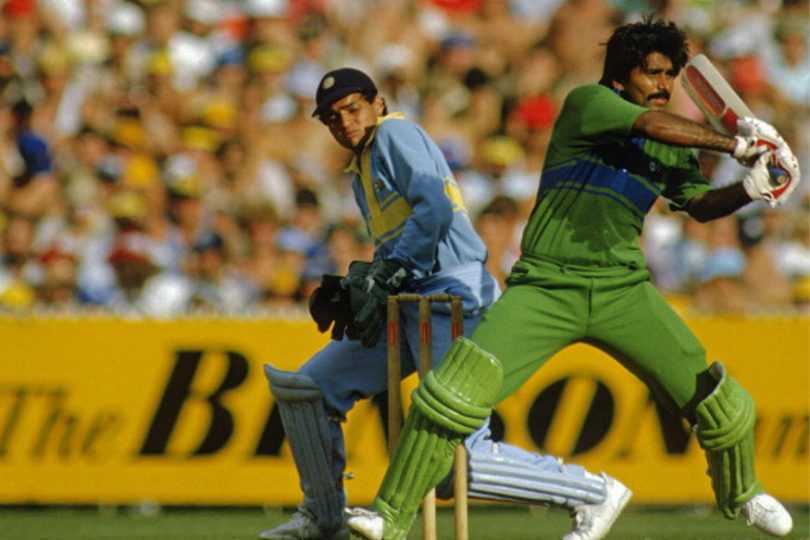India and Pakistan share one of the fiercest rivalries in cricket, with matches between the two rivals regularly attracting hundreds of millions of viewers, something other famed sporting rivalries definitely can not boast of. When the two teams, India and Pakistan, clash in the final of the Champions Trophy today, it will be coming together not just of two seasoned ODI teams who have done extraordinarily well in the tournament, it will also bring together two cricket crazed nations that do not often look eye to eye. This has happened before, though not as often as one might hope as political storms brewing have eclipsed the famed rivalry on the field. Since the creation of Pakistan in 1947, India have clashed with Pakistan often, and we look at those encounters in a brief recap of the India-Pakistan brand, including its early history.
Pakistan was admitted as a permanent member of the ICC in 1948. Pakistan’s first test series in their history was, incidentally, against India. They lost the first test to their hosts in Delhi, won the second in Lucknow (where the hosts saw an angry crowd threatening them with physical harm) and lost the third one at Bombay to cede the series 2-1. Thus was born one of the most anticipated brands in cricket. India v/s Pakistan became a call to arms of about a billion people. This took a toll on the players, though, and they became more defensive for fear of consequences if they lost. When India toured Pakistan in 1951 and Pakistan returned the favour in 61, all tests were drawn with persistent complaints of unfairness of umpires.
However, at this point, the wars between the two nations took their toll. Cricketing engagements were suspended as political propaganda took over, and it took close to two decades and regime changes before India toured Pakistan in 1978. Pakistan gave India a warm welcome on and off the field, and legends like Javed Miandad and Zaheer Abbas came of age as Pakistan defeated India both in the Test series (2-0) and the one-day series (2-1). However, India had their revenge at home the next year with a 2-0 victory in the test series they hosted. Kapil Dev took 11 wickets in the fifth test in Madras and Gavaskar scored 166 as India won by 10 wickets.
The back and forth continued, with Imran Khan-led team plundering Team India to their heart’s content the next tour of India to Pakistan in 1982, winning the test series 3-0 and the ODI series 3-1. In the meantime, India won the World Cup, and dominated the ODI series that year. The next series was abandoned midway because of the assassination of Indira Gandhi, and the run of drawn tests was broken only in Bangalore when Pakistan forced India’s hand, winning the only test match of the series to take the series 1-0. Umpiring controversies dogged the series, as they did before them, and neutral umpires were called on to administer in the matches. The tension died down, and players such as Sanjay Manjrekar and Sachin Tendulkar, and also Wasim Akram came of age in the tests and ODIs played. The test series was drawn with no results, but Pakistan won the ODI series 2-0, with the weather playing spoilsport. Indian captain Kris Srikkanth was dropped after the series, revealing the huge pressure on players of either side. There was also the last ODI at Karachi that was abandoned due to unruly crowd behaviour, and the political volatility of the times seemed to be catching up with the India-Pakistan matches.
India Pakistan continued to meet on neutral territory, such as the Friendship Cups in Sharjah and Toronto for ODI matches, and a tour of Pakistan was possible only in 1997, with Pakistan easily humbling India 2-1 in the test series. The return series was tied 1-1. There was a short test series in 1998, also part of an Asian Test Championship, which was tied 1-1, but Pakistan claimed the championship in the end. The Kargil ended all further engagements, and it was only in 2003 that India visited Pakistan for a tour. It was best remembered for Sehwag’s triple century in Multan as India won both the Test and ODI series. The return series saw Pakistan with the upper hand, and India’s turn to visit Pakistan was highlighted by their winning the ODI series.
This was the last of bilateral engagements between the two countries, as the Mumbai attacks and the attack on the Sri Lankan team put a halt on bilateral engagements and cricket in Pakistan. India and Pakistan now only meet in ICC events, such as this, and India has had a considerable upper hand as far as that goes.
When India take the field today, the legacy of the Miandads and Gavaskars and Srikanths will hang heavy has each team tries its best to conquer the other side to the wild cheering of their fellow countrymen.

